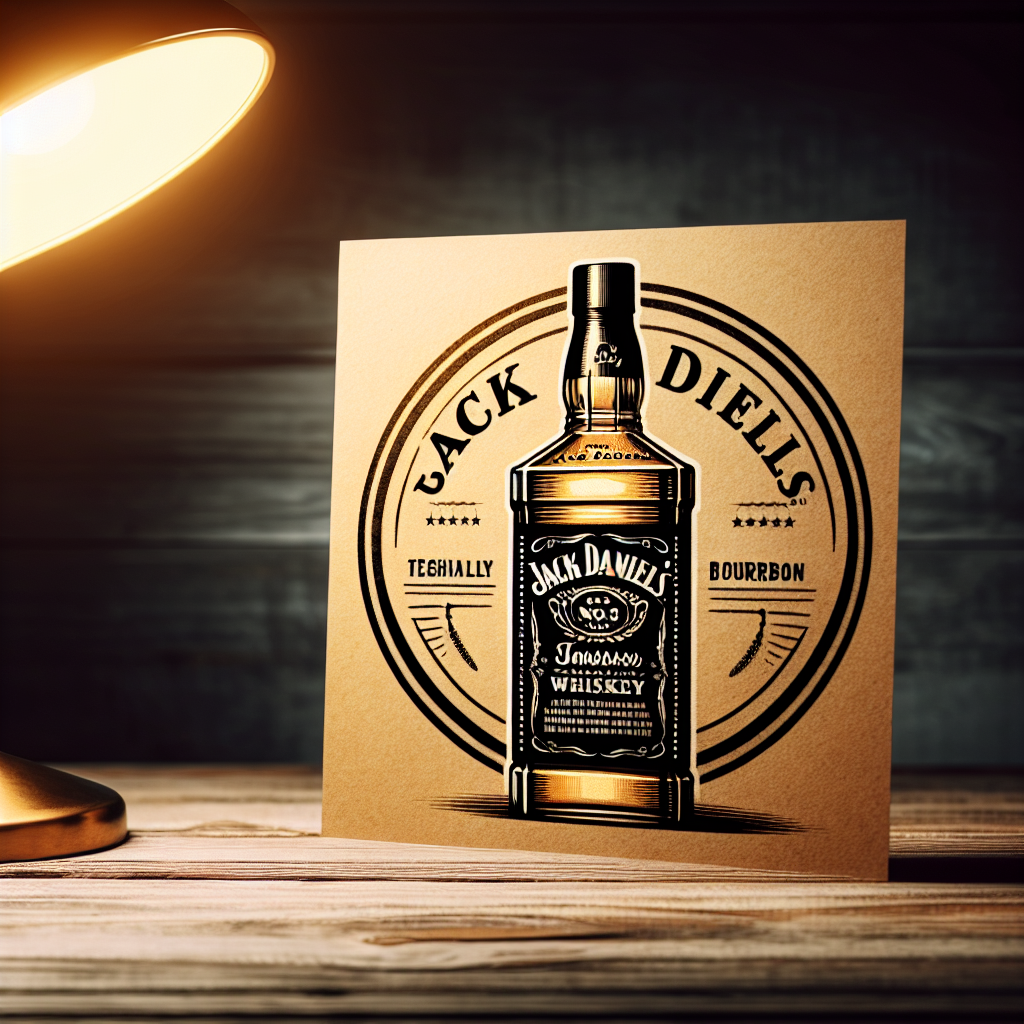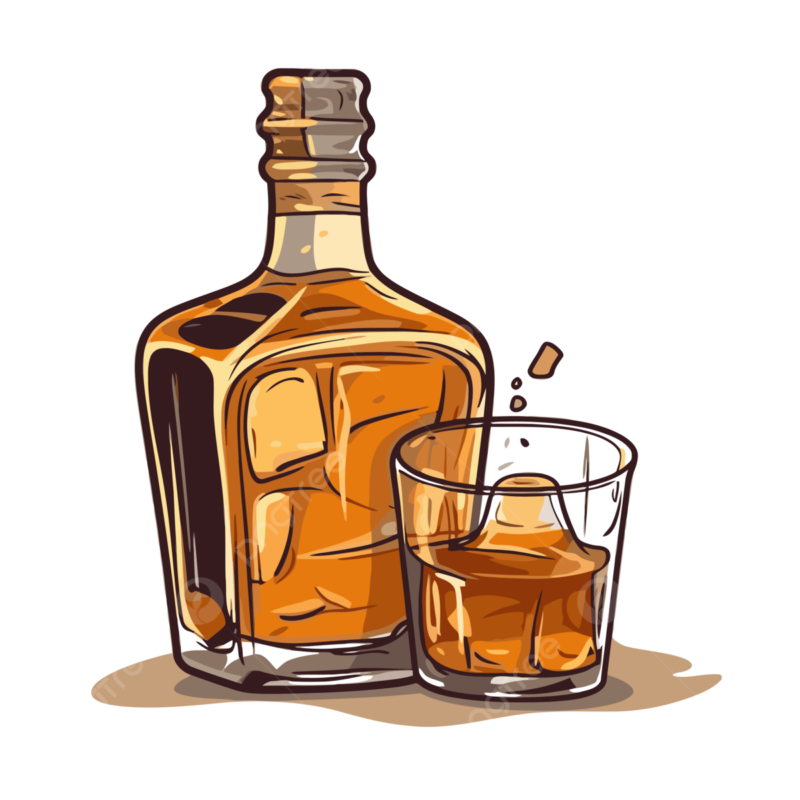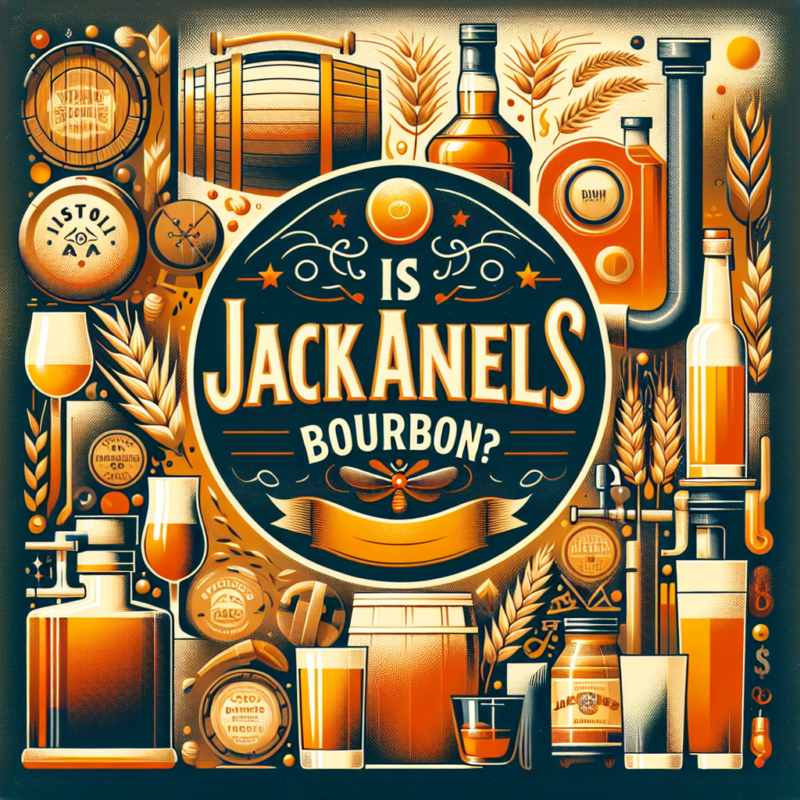Bourbon
is jack daniels bourbon
The History and Origins of Jack Daniels Bourbon
Jack Daniels bourbon is a household name when it comes to whiskey. It is a brand that has stood the test of time and has become synonymous with quality and tradition. But have you ever wondered about the history and origins of this iconic bourbon? Is Jack Daniels a bourbon? In this article, we will delve into the rich history of Jack Daniel’s and uncover the truth behind its classification as a bourbon.
The story of Jack Daniel’s begins in the small town of Lynchburg, Tennessee in the year 1866. It was here that a young Jack Daniel, at the age of just 16, started working for a local preacher and distiller, Dan Call. Under Call’s guidance, Jack learned the art of distilling and soon became a master of his craft. In 1875, with the help of his mentor, Jack established the Jack Daniel’s Distillery and began producing his now-famous whiskey.
But what sets Jack Daniels apart from other whiskeys? The answer lies in its unique production process. Unlike other bourbons, Jack Daniels bourbon is not made from corn, but rather a combination of corn, rye, and barley. This gives it a distinct flavor profile that sets it apart from other bourbons. Additionally, Jack Daniels bourbon is filtered through sugar maple charcoal before being aged in charred oak barrels. This process, known as the Lincoln County Process, is what gives Jack Daniel’s its smooth and mellow taste.
Now, let’s address the elephant in the room – is Jack Daniels a bourbon? The answer is yes and no. Technically speaking, Jack Daniels bourbon meets all the requirements to be classified as a bourbon. It is made from at least 51% corn, aged in new charred oak barrels, and distilled to no more than 160 proof. However, the Lincoln County Process, which is unique to Jack Daniels bourbon, disqualifies it from being labeled as a bourbon. According to the regulations set by the US government, bourbon must not be filtered through charcoal. Therefore, Jack Daniel’s is classified as a Tennessee whiskey, a category that it shares with only a handful of other distilleries.
But why did Jack Daniels choose to filter their whiskey through charcoal? The answer lies in the history of the brand. In the early days, Jack Daniel’s was sold in barrels and was not bottled. This meant that the whiskey would often spoil during transportation. To combat this issue, Jack Daniels started filtering their whiskey through charcoal, which acted as a natural filter and removed impurities, making the whiskey more stable and less likely to spoil. This process also gave Jack Daniels bourbon its signature smoothness, which has become a defining characteristic of the brand.
Over the years, Jack Daniels bourbon has become a global phenomenon, with its iconic square bottle and black label being instantly recognizable. The brand has also been featured in popular culture, with references in movies, TV shows, and music. But despite its widespread popularity, Jack Daniels bourbon has remained true to its roots and continues to be produced in the same distillery in Lynchburg, Tennessee.
In conclusion, the history and origins of Jack Daniels bourbon are deeply intertwined with its unique production process and classification as a Tennessee whiskey. While it may not be classified as a bourbon, there is no denying the impact that Jack Daniels bourbon has had on the world of whiskey. So the next time you pour yourself a glass of Jack Daniels bourbon, remember the rich history and tradition behind this iconic brand.
The Distilling Process of Jack Daniels Bourbon

Jack Daniels is a well-known and beloved brand of whiskey, but many people are unsure if it is considered a bourbon. The answer is yes, Jack Daniel’s is indeed a bourbon. However, it is not just any bourbon, it is a Tennessee whiskey. This distinction is important as it sets Jack Daniel’s apart from other bourbons and gives it its unique flavor profile.
The distilling process of Jack Daniels bourbon begins with the selection of high-quality grains. The main ingredient in bourbon is corn, and Jack Daniel’s uses a specific strain of corn that is grown exclusively for them. This corn is mixed with rye and malted barley to create the mash bill, which is the recipe for the whiskey.
The next step in the process is the fermentation of the mash. Jack Daniels bourbon uses a proprietary strain of yeast that has been used since the distillery’s inception in 1866. This yeast is what gives Jack Daniels its distinct flavor and is a closely guarded secret. The mash is fermented for several days until it reaches the desired alcohol content.
Once the fermentation is complete, the mash is ready to be distilled. Jack Daniels bourbon uses a unique process called the Lincoln County Process, which involves filtering the whiskey through sugar maple charcoal before it is aged. This process is what sets Tennessee whiskey apart from other bourbons. The charcoal filtering removes impurities and adds a smoothness to the whiskey.
After the Lincoln County Process, the whiskey is ready to be aged. Jack Daniels bourbon uses new, charred oak barrels for their aging process. These barrels are made from American white oak and are charred on the inside to give the whiskey its signature color and flavor. The whiskey is aged for a minimum of four years, but some batches are aged for much longer, resulting in a richer and more complex flavor.
Once the whiskey has been aged to perfection, it is time for bottling. Jack Daniel’s is bottled at 80 proof, which is the standard for most bourbons. However, they also offer a higher-proof version called Jack Daniel’s Single Barrel, which is bottled at 94 proof. This higher-proof version is aged in a single barrel, giving it a more intense flavor.
One of the most unique aspects of Jack Daniel’s is their use of the “Sour Mash” process. This involves using a portion of the previous batch of whiskey to start the fermentation process for the new batch. This ensures consistency in flavor and gives Jack Daniel’s signature taste.
In addition to their classic Old No. 7, Jack Daniel’s also offers a variety of flavored whiskeys, including Honey, Tennessee Fire, and Tennessee Apple. These flavored whiskeys are made by infusing the classic Old No. 7 with natural flavors, giving them a unique twist on the traditional Jack Daniel’s flavor.
In conclusion, Jack Daniels is indeed a bourbon, but it is also much more than that. Its unique distilling process, including the Lincoln County Process and the use of the Sour Mash method, sets it apart from other bourbons. The result is a smooth and flavorful whiskey that has stood the test of time and continues to be a favorite among whiskey lovers worldwide. So the next time you pour yourself a glass of Jack Daniel’s, you can appreciate the intricate and time-honored process that goes into creating this iconic Tennessee whiskey.
Exploring the Different Varieties of Jack Daniels Bourbon
Jack Daniel’s is a well-known and beloved brand of whiskey that has been around for over 150 years. It is often associated with the American South and has become a staple in bars and liquor cabinets all over the world. However, there is often confusion surrounding the classification of Jack Daniels. Is it a bourbon? Or is it something else entirely?
To answer this question, we must first understand what bourbon is. Bourbon is a type of whiskey that is primarily made from corn and aged in charred oak barrels. It must also be produced in the United States to be considered a bourbon. With this definition in mind, we can now explore the different varieties of Jack Daniel’s and determine whether or not it can be classified as a bourbon.
The most common variety of Jack Daniel’s is the Old No. 7. This is the classic black-label bottle that most people are familiar with. It is a Tennessee whiskey, which means it is produced in the state of Tennessee. However, unlike bourbon, Tennessee whiskey goes through an additional step in the production process called the Lincoln County Process. This involves filtering the whiskey through maple charcoal before it is aged in barrels. This process gives Jack Daniel’s its distinct smooth and slightly sweet flavor.
Some may argue that because of the Lincoln County Process, Jack Daniel’s cannot be considered a bourbon. However, the process does not change the fact that it is primarily made from corn and aged in charred oak barrels, which are two key requirements for bourbon. The only difference between Tennessee whiskey and bourbon is the additional step of charcoal filtering. Therefore, it can be argued that Jack Daniel’s Old No. 7 can indeed be classified as a bourbon.
Moving on to another popular variety of Jack Daniel’s, the Single Barrel. As the name suggests, this whiskey is bottled from a single barrel, rather than being a blend of multiple barrels like the Old No. 7. This results in a more unique and complex flavor profile. The Single Barrel is also aged in charred oak barrels and made primarily from corn, making it a strong contender for the bourbon classification.
However, there is one key difference between the Single Barrel and traditional bourbons. The Single Barrel is not bottled at the standard 80 proof, but rather at a higher proof of 94. This is because Jack Daniel believes that the higher proof allows for a more intense and flavorful experience. While this may deviate from the standard for bourbon, it does not change the fact that the Single Barrel meets all the other requirements.
Finally, we have the Jack Daniel’s Gentleman Jack. This variety is unique in that it goes through the Lincoln County Process twice, resulting in an even smoother and milder taste. Some may argue that this makes it even less of a bourbon than the Old No. 7. However, the Gentleman Jack is still made primarily from corn and aged in charred oak barrels, making it a strong contender for the bourbon classification.
In conclusion, while there may be some debate over whether or not Jack Daniel’s can be classified as a bourbon, it is clear that it meets all the key requirements. It is primarily made from corn, aged in charred oak barrels, and produced in the United States. The additional step of charcoal filtering does not change the fact that it is a type of whiskey that shares many similarities with bourbon. So, the next time someone asks you if Jack Daniel’s is a bourbon, you can confidently say yes.

